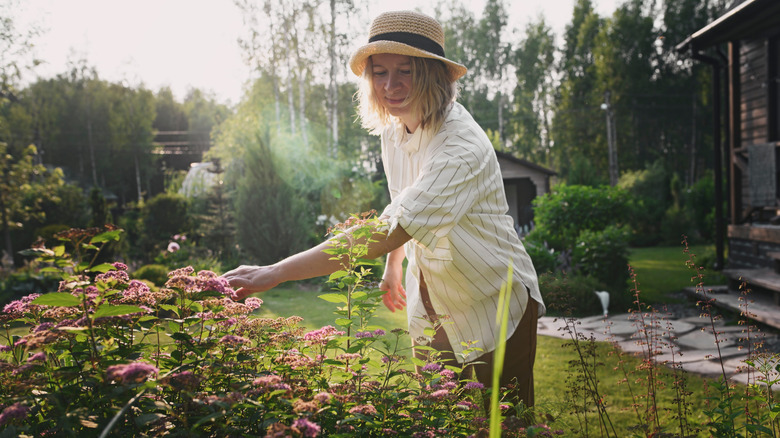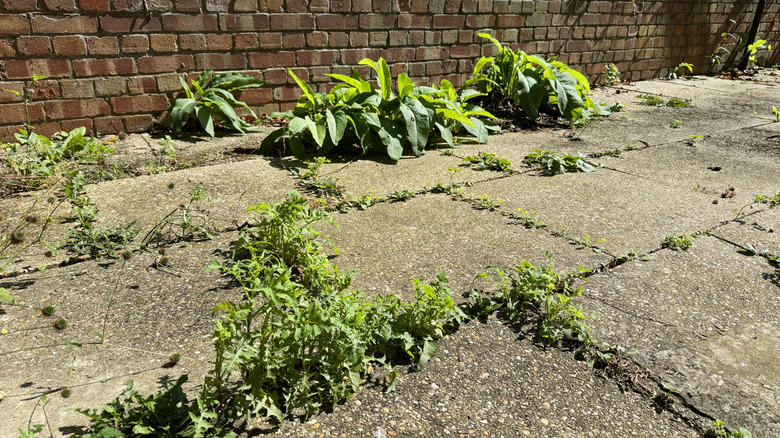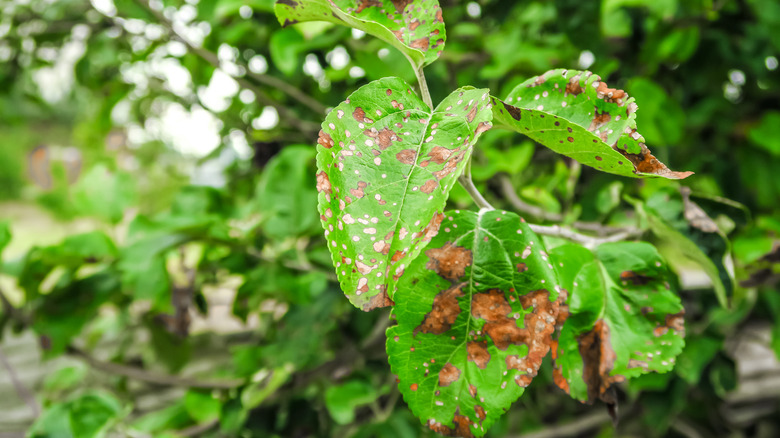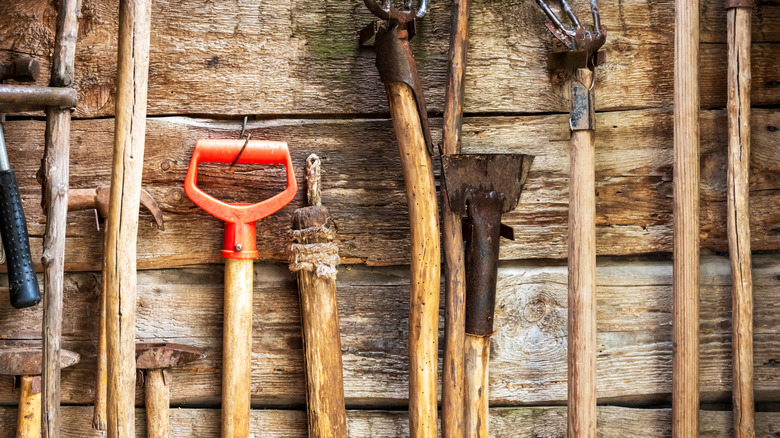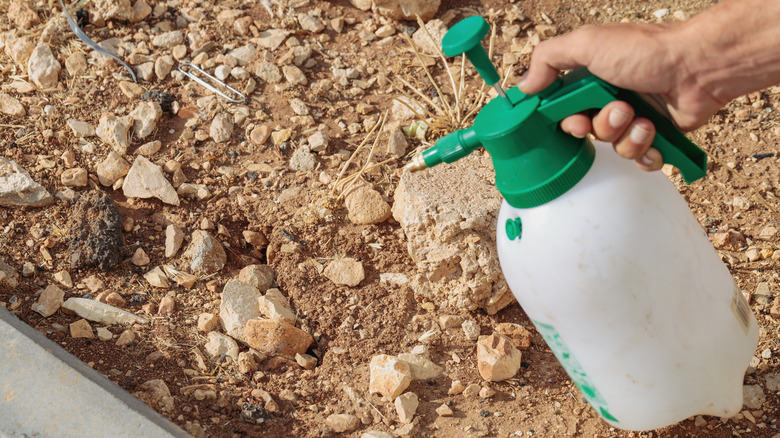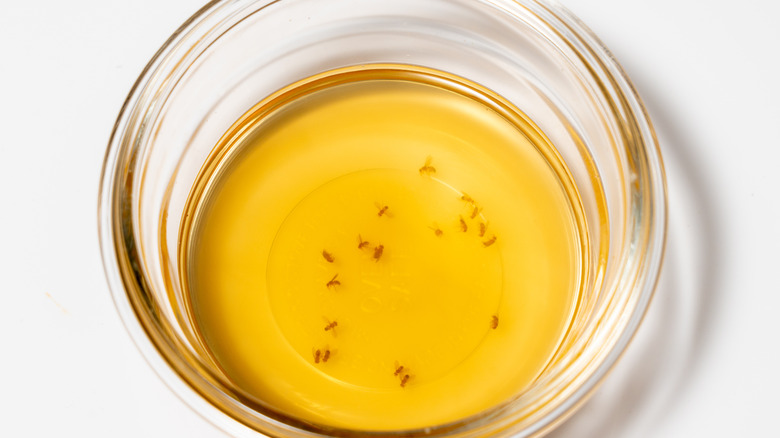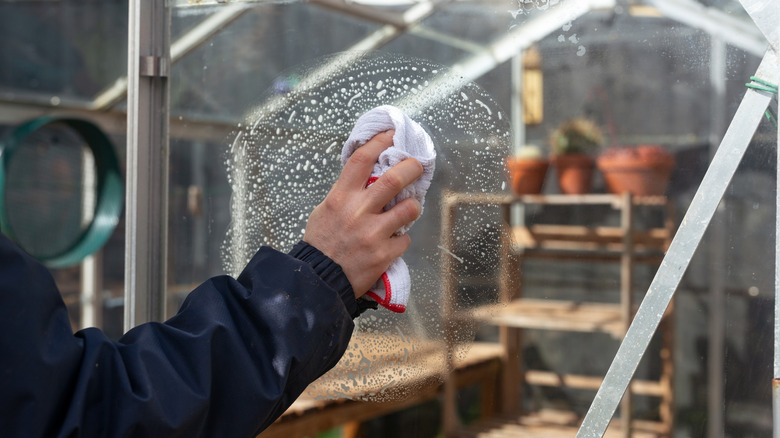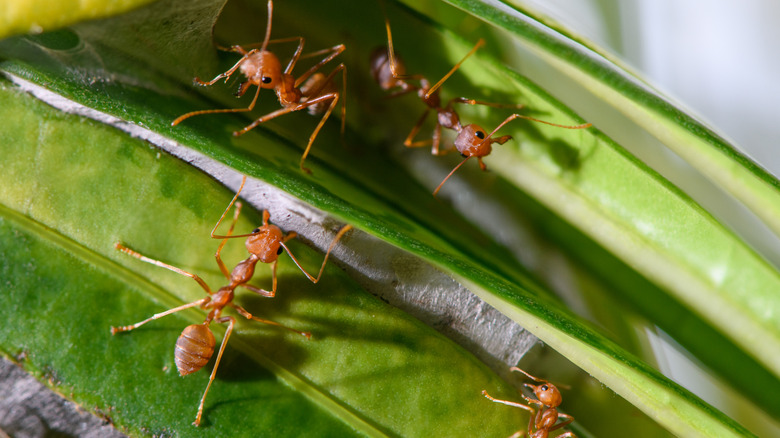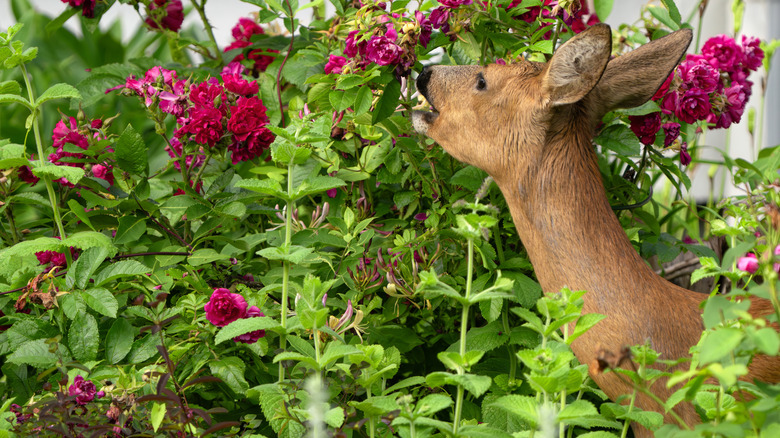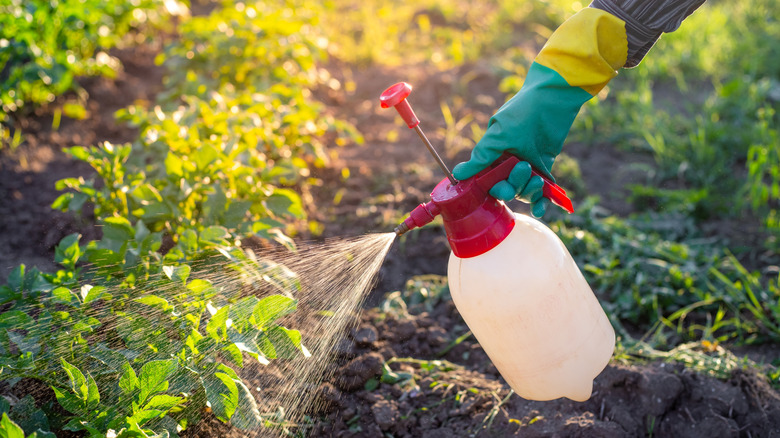9 Genius Ways To Use Apple Cider Vinegar To Transform Your Garden
The humble apple cider vinegar has many uses beyond the kitchen, and nowhere more so than in the garden. You may well be familiar with the ways you can use apple cider vinegar for a cleaner home, but did you know that, when used correctly, it can be one of the most useful natural ingredients for various garden maintenance jobs? Try it on everything from killing weeds to cleaning gardening tools.
Apple cider vinegar is about 4 to 6% acetic acid, and its antimicrobial properties make it an extremely effective cleaner and controller of pests in the garden. Cheap to buy at the supermarket, you can also make your own apple cider vinegar at home, and when you're not using it for its many uses in the garden, it's also incredibly tasty and adds flavor to a multitude of dishes. Let's delve into the many ways apple cider vinegar can help to transform your garden and the necessary precautions to take so that you don't damage your plants in the process.
Killing weeds
If you have weeds poking up through your patio, paved areas, or driveway, apple cider vinegar is a simple and effective way to deal with them. Keep weeds from popping up between cracks by combining equal parts of vinegar, salt, and dish soap into a large plastic jug. Mix this well together and fill a small spray bottle with the vinegar solution. Make sure to completely saturate the weeds and then leave for several days. You should now be able to simply pluck the dead weed out of the crack.
Combating fungal diseases
Apple cider vinegar can be an effective tool in dealing with fungal diseases. It works by altering the pH balance, but care must be taken to dilute properly so you don't damage your plants. For the majority of plants, a safe dilution is two tablespoons of apple cider vinegar mixed with a gallon of water. Spray this on your plants every week to prevent fungi from growing. However, if you already have established fungal disease, you'll need a stronger concentration. Use four tablespoons of apple cider vinegar for powdery mildew and three tablespoons for leaf spot disease.
Cleaning garden tools
Knowing how to clean and disinfect your gardening tools effectively is part of good garden maintenance. And apple cider vinegar is a useful cleaning agent that will clean without the use of harsh chemicals. The acetic acid in apple cider vinegar not only removes dirt but can also help get rid of mineral deposits and even eat away at rust. The easiest way to clean your tools is by soaking the metal parts in vinegar overnight. If this doesn't clear everything, mix apple cider vinegar and baking soda together and scrub the tools to remove what's left.
Increasing the acidity of your soil
Different plants appreciate differing levels of acidity in the soil and if your soil is too alkaline, some plants could struggle to thrive. There are plenty of plants that will thrive in acidic soil, such as pansies and begonias, along with adding vibrant splashes of color. But if your soil is too alkaline to maintain them, a simple solution made up of one tablespoon of apple cider vinegar and one gallon of warm water can be added to your soil, increasing both the iron level and acidity whilst still protecting plants.
Getting rid of fruit flies
If you're looking for ways to get rid of fruit flies once and for all, apple cider vinegar is a great choice for building a fruit fly trap. The clue is in the name here –- fruit flies are naturally attracted to decaying fruit and their receptors can easily mistake apple cider vinegar for this rotting fruit. A small bowl filled with apple cider vinegar and a few drops of liquid dishwasher soap (to prevent the flies from flying away) should be more than enough to trap fruit flies.
Cleaning greenhouses
Once you've organized your greenhouse to maximize space and have chosen the plants that will thrive in these conditions, you'll need to keep the glass clean. Greenhouses rely on their glass panels to allow light into the structure, so it's vital to keep the panels clean. You can safely clean your greenhouse windows by mixing one cup apple cider vinegar to two cups of water. Use a cloth to wipe this solution over your windows and you'll be left with a sparkling finish.
Keeping insects off your plants
The acidity of apple cider vinegar deters many insects and pests, such as aphids and ants. Mix one cup of apple cider vinegar with three cups of water and a couple of drops of liquid dish soap, pouring into a spray bottle and shaking well before use. Spray this carefully around the base of your plants, but take care not to get the solution on leaves as it could burn them. This non-toxic solution will also not be harmful to your pets if they're digging around in any flowerbeds.
Deterring wildlife
Beautiful as wildlife is, some animals can be a little bit destructive in the garden. Certain plants make tasty treats, so using a little apple cider vinegar to deter them from a certain part of the garden safely is an excellent idea. Soak cloths or some cotton wool buds in apple cider vinegar and simply put them in areas that you want to deter wildlife from. Do be aware that heavy use could alter the pH balance of your soil, so be sure not to overuse.
Use as a liquid fertilizer
This last tip comes with a caveat, as it won't be suitable for all gardens or plants. But if you have plants that enjoy slightly acidic conditions, a fertilizer made with a little apple cider vinegar could help them to flourish. Caution is required, though, because if you use too much, you could kill your plants. Add no more than an ounce of apple cider vinegar to every gallon of water and stir this well together before using in a spray bottle as a liquid fertilizer.
